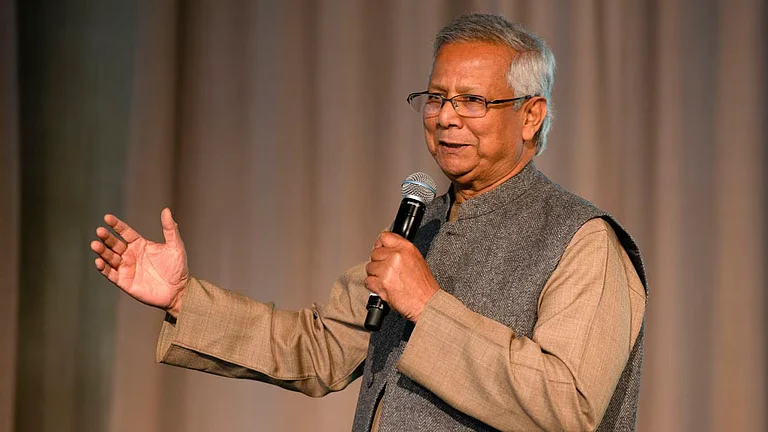External Affairs Minister S. Jaishankar today strongly countered Bangladesh's Chief Adviser Muhammad Yunus, just days after Yunus described India's Northeast as "landlocked" and positioned Bangladesh as the "guardian of ocean access" for the region.
S. Jaishankar Hits Back At Yunus "Cherry-Picking" Remarks On Northeast
During his recent four-day visit to China, Muhammad Yunus claimed that India's Northeast was "landlocked" and lacked access to the ocean.
Jaishankar emphasized India's strategic importance in the Bay of Bengal Initiative for Multi-Sectoral Technical and Economic Cooperation (BIMSTEC), underscoring the country라이브 바카라 6,500-km coastline and its geographical ties with five BIMSTEC members.
"We have the longest coastline in the Bay of Bengal, stretching nearly 6,500 km. India not only shares borders with five BIMSTEC members and connects most of them, but it also serves as the main interface between the Indian subcontinent and ASEAN. Particularly, our Northeast region is emerging as a connectivity hub for BIMSTEC, with an extensive network of roads, railways, waterways, grids, and pipelines," Jaishankar said in a statement.
Muhammad Yunus, during his recent visit to China, had remarked that India's Northeast was "landlocked" and lacked access to the ocean, promoting Bangladesh as the region's key maritime gateway.
He also encouraged Beijing to expand its economic influence in Bangladesh, calling the country the "only guardian of the ocean" in the region. These comments, made amid Bangladesh's signing of nine agreements with China and securing a $2.1 billion financial package, sparked a row, prompting leaders across party lines to condemn him.
"We are conscious that our cooperation and facilitation are an essential prerequisite for the smooth flow of goods, services and people in this larger geography. Keeping this geo-strategic factor in mind, we have devoted increasing energies and attention to the strengthening of BIMSTEC in the last decade. We also believe that cooperation is an integrated outlook, not one subject to cherry-picking,” Jaishankar added.
Yunus' remarks sparked outrage, particularly in the Northeast. Assam Chief Minister Himanta Biswa Sarma condemned the statements as "offensive" and "strongly condemnable."
"Such provocative statements by Muhammad Yunus must not be taken lightly, as they reflect deeper strategic considerations and longstanding agendas," Sarma posted on X.
He also warned that Yunus' comments revived discussions around the "Chicken's Neck" corridor, a vulnerable stretch of land in West Bengal connecting the Northeast to the rest of India.
"Historically, internal elements within India have dangerously suggested severing this critical passageway. Therefore, it is imperative to develop more robust railway and road networks both underneath and around the Chicken's Neck corridor," Sarma stated.
Former Manipur Chief Minister N Biren Singh accused Bangladesh's interim government of treating India's Northeast as a "strategic pawn" and warned Yunus against making "reckless comments" about India's sovereignty.
During his China visit, Yunus signed agreements for economic collaboration, including Bangladesh's Teesta River Comprehensive Management and Restoration Project (TRCMRP). He also met with President Xi Jinping, urging Beijing to play a "greater role" in Bangladesh's stability.
India has historically relied on access to Bangladesh's ports, particularly Chittagong, for trade and logistics. During former Bangladesh PM Sheikh Hasina's tenure, Dhaka granted India access to the Chittagong Port via Tripura's Sabroom sub-division, just 75 km away from the port.
